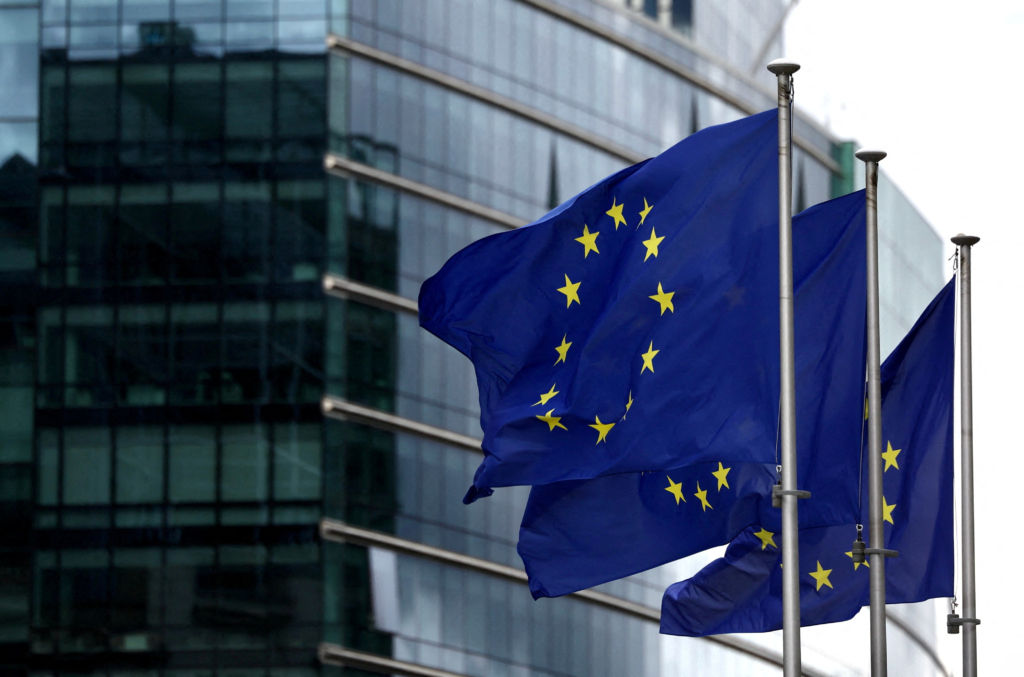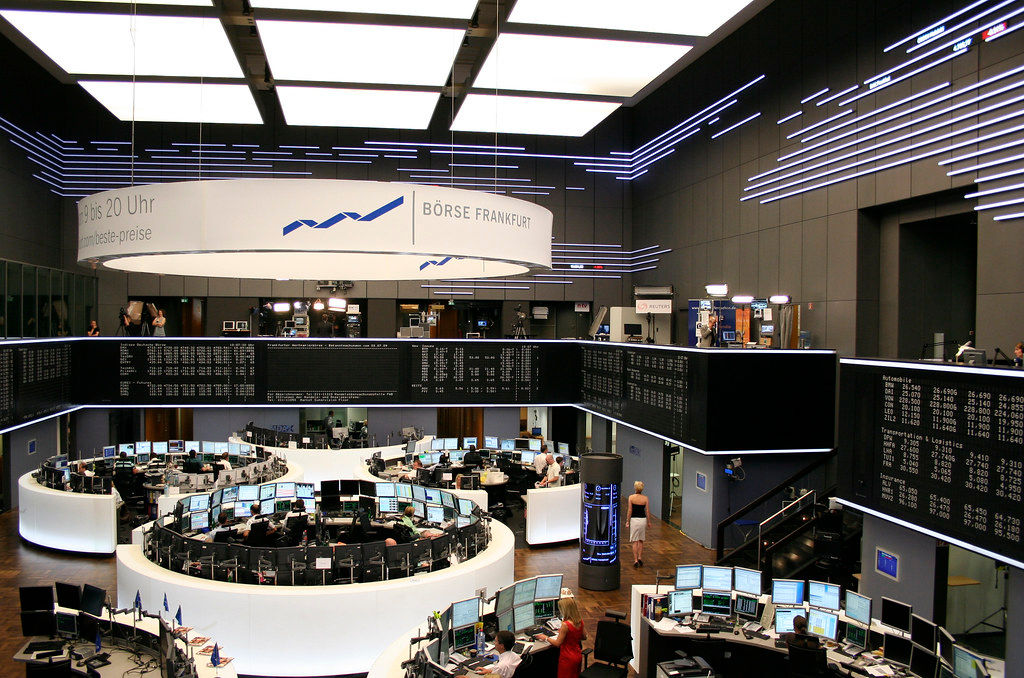Blog

Swiss cantonal bank starts offering Cardano and Avalanche to meet increased demand
Mar-18-2025
Swiss bank Zuger Kantonalbank has added Cardano and Avalanche to its cryptocurrency offering through a partnership with crypto-focused bank Sygnum.
Zuger Kantonalbank, a Swiss universal bank, has expanded its cryptocurrency offerings to include Cardano (ADA) and Avalanche (AVAX) through a partnership with crypto-focused Swiss bank Sygnum.
In a blog announcement on March 17, Sygnum said the expansion was driven by “increased customer demand” amid what it described as growing regulatory clarity in the U.S. and E.U., as well as the establishment of a U.S. Strategic Bitcoin Reserve. The bank’s fiat-to-crypto transactions are facilitated through Sygnum’s gateway, while Zuger Kantonalbank customers can access the service via e-banking and its mobile app.
Jan Damrau, head of corporate management and member of the Zuger Kantonalbank executive board, says the addition of ADA and AVAX enables the bank’s clients to “further develop their crypto portfolios conveniently with their principal bank – at a time when digital assets are approaching a global inflection point in terms of adoption.”
“The latest expansion of Zuger Kantonalbank’s token universe illustrates the strong demand for additional tokens with diverse use-cases to complement major protocols like Bitcoin and Ethereum.”
Fritz Jost, Sygnum Bank chief B2B officer
In early January, Sygnum raised $58 million in its Strategic Growth Round, pushing its value to over $1 billion and making it a “unicorn.” The funding round was oversubscribed, with Fulgur Ventures, a Bitcoin-focused venture capital firm, as the cornerstone investor. New and existing investors, along with Sygnum team members, also participated in the funding.
Read more

MicroStrategy's Bitcoin Holdings Reach 499,096 BTC
Mar-17-2025
MicroStrategy now holds 499,096 Bitcoin, valued at $33.1 billion, revealed on March 15, 2025.
The acquisition signifies potential volatility impact on Bitcoin markets and institutional strategies.
MicroStrategy Acquires 499,096 BTC at $66,357 Average Price
The latest update shows that MicroStrategy's Bitcoin holdings have increased to 499,096. The company acquired these holdings at an average price of $66,357 per Bitcoin. CEO Michael Saylor's announcement highlights the firm's long-term commitment to digital currency. The holdings represent 2.3% of Bitcoin's total supply, underscoring a significant market influence. This marks another strategic move by the firm in cryptocurrency investment.
Market Volatility: Effect of MicroStrategy's Bitcoin Addition
MicroStrategy's Bitcoin stockpile could amplify market volatility and affect institutional trading strategies. With Bitcoin trading at $84,230, the company's market valuation now stands at $15.2 billion. Some analysts suggest this move strengthens MicroStrategy's position but may also pressure Bitcoin's price stability in the market. Others note a possible influence on relevant stock market dynamics.
Michael Saylor, Executive Chairman, MicroStrategy, stated, "We are looking at a 45% volatility gap between Bitcoin and traditional markets, revealing a new strategy to attract a large pool of investors." Source
Historical Acquisitions and Current Market Expectations
MicroStrategy's previous Bitcoin acquisitions have similarly impacted industry trends, drawing parallels with earlier purchasing strategies. Historically, such movements have not only influenced Bitcoin's price but also sparked broader institutional interest. Experts argue that past acquisitions suggest continued market volatility. Looking forward, analysts emphasize potential shifts in both crypto and stock market behaviors.
Read more

Europe dominates crypto banking with 55 friendly banks
Mar-14-2025
Europe leads the crypto-friendly banking sector, with 55 banks offering digital asset services. This number surpasses that of Asia and North America.
These banks provide various services, including custody, trading, and fiat-crypto conversions. This makes Europe the top region for integrating cryptocurrency into traditional finance.
The growth of crypto-friendly banks in Europe is largely due to a strong regulatory framework. Countries like Germany, Switzerland, Liechtenstein, and Lithuania have taken the lead. They host notable institutions such as SEBA Bank, Bank Frick, and Revolut. These banks facilitate crypto transactions and offer secure storage, staking, and asset tokenization.
In comparison, Europe is ahead of other regions. In the United States, banks have only recently received permission to engage in crypto services after the White House Crypto Summit. Europe, however, has already established regulations that encourage bank participation in the crypto sector.
A key factor in this growth is the Markets in Crypto-Assets (MiCA) framework. MiCA provides clear regulations for banks and financial institutions dealing with crypto.
It creates a secure and transparent environment, allowing service providers to expand across borders while accessing reliable banking support. This legal clarity has made it easier for banks to integrate crypto services, distinguishing Europe from regions with uncertain regulations.
Countries like Germany, Switzerland, and Malta have also introduced favorable tax policies. For instance, Germany has a 0% tax on long-term crypto profits, attracting investors.
Digital banks such as Revolut, N26, and Fidor have quickly adopted crypto services, appealing to modern customers seeking seamless digital finance solutions. These neobanks are often more agile than traditional U.S. banks, which remain cautious due to stricter regulations.
Despite its leadership, Europe faces challenges like price volatility, fraud risks, and strict Anti-Money Laundering (AML) and Know-Your-Customer (KYC) regulations.
Read more

Bitcoin as National Asset? U.S. Lawmakers Push for 1 Million BTC Reserve
Mar-13-2025
In a groundbreaking move, Congressman Nick Begich of Alaska introduced the BITCOIN Act of 2025 on March 11, proposing the creation of a U.S. Strategic Bitcoin Reserve (SBR). The bill aims to acquire 1 million BTC over five years without imposing additional taxpayer burdens, reinforcing America’s economic security and leadership in the digital asset space.
Bitcoin as a Strategic Asset
Announced at the Bitcoin for America Summit, Begich stressed the importance of embracing Bitcoin as a national financial reserve, similar to gold. In a statement on social media platform X, he declared:
"The war on innovation is over, and the golden age of digital currency has arrived."
The bill builds upon former President Donald Trump’s Executive Order, which established the foundation for a national Bitcoin strategy. According to Begich, securing a Bitcoin reserve is essential to counter adversarial monetary policies and reinforce U.S. global economic leadership.
Funding Without Taxpayer Burden
A key aspect of the bill is its budget-neutral approach. The U.S. Treasury will use alternative funding sources, including:
Federal Reserve remittances
Gold certificate revaluations
Other budget-neutral financial strategies
All Bitcoin holdings under this program will be stored in cold storage to ensure maximum security.
Senate Support & National Implications
Senator Cynthia Lummis of Wyoming, a longtime Bitcoin advocate, has introduced a companion bill in the Senate, reinforcing the legislative push. Lummis emphasized that Bitcoin is not just a technological advancement but a "national imperative for America's continued financial leadership in the 21st century."
The bill also protects individual rights, ensuring that the federal government cannot impose restrictions on private Bitcoin ownership or self-custody.
Bitcoin’s Role in the U.S. Economy
With Bitcoin’s market capitalization exceeding $1.2 trillion, the legislation aims to position the United States at the forefront of the digital economy. Begich urges Congress to take decisive action, ensuring the country does not fall behind in the evolving global financial landscape.
As debates unfold, the BITCOIN Act of 2025 could reshape U.S. economic policy, setting a precedent for integrating digital assets into national reserves.
Read more

Deutsche Boerse Expands Into Crypto Custody and Settlement for Institutional Clients
Mar-12-2025
Germany’s Deutsche Boerse announced on Tuesday that it will begin offering cryptocurrency custody and settlement services for institutional clients starting next month. This move makes Deutsche Boerse the latest major player to step into crypto custody management for digital assets like bitcoin and ether.
The new service will enable crypto trading across various trading venues to be settled and securely held within Clearstream, Deutsche Boerse’s settlement arm. This development marks a significant step in the German exchange’s expansion into digital assets, following the launch of its dedicated crypto trading platform for institutional investors last year. Beginning in April, clients will have access to custody and settlement services for bitcoin and ether—the world’s two largest cryptocurrencies—with the potential for additional assets to be added based on client demand. Deutsche Boerse’s subsidiary, Crypto Finance, will serve as a sub-custodian for the offering.
“Offering crypto custody is the next step on Clearstream’s journey to digitise financial markets,” said Jens Hachmeister, Clearstream’s head of issuer services and new digital markets.
The move comes as European financial institutions increasingly embrace cryptocurrencies, following the European Union’s implementation of the Markets in Crypto-Assets (MiCA) regulatory framework in 2023. The announcement—first reported by Bloomberg—follows Crypto Finance’s successful acquisition of a MiCA license in January.
Deutsche Boerse joins other major custody providers in this space, including Bank of New York Mellon (BK.N), which launched its crypto custody services in 2022, and State Street (STT.N), which expanded its digital asset services last year.
Deutsche Boerse introduced a regulated crypto trading platform for institutional investors in March 2023. That platform has since been integrated into Deutsche Boerse’s 360T subsidiary, according to a company spokesperson.
The election of Donald Trump as U.S. President last year has fueled expectations that more traditional financial institutions will enter the crypto market. U.S. regulators recently eased restrictions, making it simpler for banks to participate in crypto-related activities. European banks are also stepping up their involvement. On Monday, Spain’s BBVA revealed it had secured approval from the country’s securities regulator to offer bitcoin and ether trading services locally.
Bitcoin experienced a sharp rally following Trump’s election victory but has since retreated.
Read more






